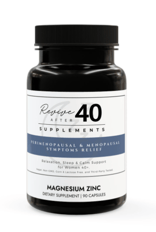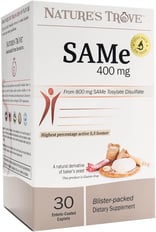Mood Swings & Perimenopause: How to Find Emotional Balance (with Key Nutrients)
HORMONE HEALTH & PERIMENOPAUSE
Karleen Pagan
7/23/20253 min read


One minute you're fine. The next? You're crying over a commercial or snapping at your family for no reason.
Sound familiar?
If your emotions feel like a rollercoaster you didn’t sign up for — welcome to perimenopause.
And no, you're not crazy. You're not weak. You're hormonally shifting.
Let’s unpack why mood swings happen during perimenopause — and more importantly, how to calm the emotional chaos naturally with the help of targeted lifestyle strategies and mood-balancing nutrients.
Why Mood Swings Happen During Perimenopause
As estrogen and progesterone fluctuate wildly, they impact two major emotional regulators in your brain: serotonin and GABA.
Here’s what that means:
Low progesterone = less GABA = more anxiety, racing thoughts, poor sleep
Low estrogen = less serotonin = more irritability, sadness, even depressive symptoms
Add cortisol spikes from stress, and it’s the perfect storm for emotional overwhelm.
How to Find Emotional Balance (Without Feeling Numb)
You don’t need to medicate your emotions away — but you do need to support your nervous system and brain chemistry as your hormones shift.
Here’s how I found my emotional footing again — and how you can too:
1. Start the Day with a Calm-First Routine
How you begin your morning sets your emotional baseline.
Try:
5 minutes of breathing or journaling
No phone or email for the first 30 minutes
Protein-rich breakfast to stabilize blood sugar (avoids emotional crashes later)
🛒 Amazon Pick: Morning Mindset Journal for Women


2. Add Omega-3 Fatty Acids to Your Day
Omega-3s (especially EPA and DHA) are proven to:
Boost serotonin
Reduce inflammation in the brain
Improve mood stability during hormonal shifts
🛒 My supplement: High-Strength Omega-3 Supplement for Women
🛒 Amazon Favorite: Omega-3 Gummies (Fish-Free)


3. Support Your Body with Magnesium (Your Anti-Anxiety Mineral)
Magnesium calms the nervous system and supports GABA production — essential for emotional regulation.
I created the Magnesium Calm Blend in our Revive After 40 shop for exactly this reason. It includes:
Magnesium glycinate (gentle & calming)
L-theanine (for anxiety relief)
B6 (to help with hormone-related mood swings)
🛒 My supplement: Shop My Mood-Boosting Magnesium Blend


4. Try Natural Mood Nutrients Like SAM-e and B Vitamins
SAM-e (S-adenosylmethionine) supports neurotransmitters like dopamine and serotonin. It’s often used as a natural alternative to antidepressants — especially for hormonal mood issues.
B-complex vitamins, especially B6, B9 (folate), and B12, are crucial for emotional resilience.
🛒 Amazon Pick option 1: SAM-e Supplement for Mood Support
🛒 Amazon Pick option 2: Active B-Complex with Methylated Folate


5. Eat to Stabilize Blood Sugar (Mood Swings Are Often Sugar Swings)
When blood sugar crashes, your mood crashes too.
Perimenopausal women are more insulin resistant, so keeping levels stable is key.
Try:
No skipping meals
Combine carbs with protein and fats
Avoid high-sugar snacks and opt for fiber-rich options
🛒 Amazon Pick: Low-Glycemic Snack Bars for Hormone Health


6. Move Daily — But Gently
Movement releases endorphins and clears stress hormones. But intense exercise can increase cortisol. Choose:
Walking
Pilates or yoga
Light strength training
🛒 Amazon Pick: Gentle Yoga Mat + Resistance Band Set


7. Give Yourself Permission to Feel (Then Regulate)
Mood swings aren’t a personal failure — they’re a biological invitation to slow down, tune in, and nourish your body.
Journal. Pray. Cry. Then take your supplements, drink your water, and go for that walk.
You are healing — and that’s powerful.
Your Peace Is Possible
You don’t have to live in emotional chaos. Your body is changing — not failing.
With the right nutrients, habits, and support, you can feel steady again.
🛍️ Grab my full Mood & Sleep Support Collection
📥 Download the free Perimenopause Survival Checklist
📺 Watch the video: “Change Your Mood With These 3 Micro Habits”
You’re not alone. You’re not broken.
You’re becoming — and you’re doing it with grace.
Empowering women to embrace midlife wellness together.
hi@reviveafter40.com
© 2025. All rights reserved.


Ready to Revive Your Body and Mind After 40? Let’s Do This Together.


